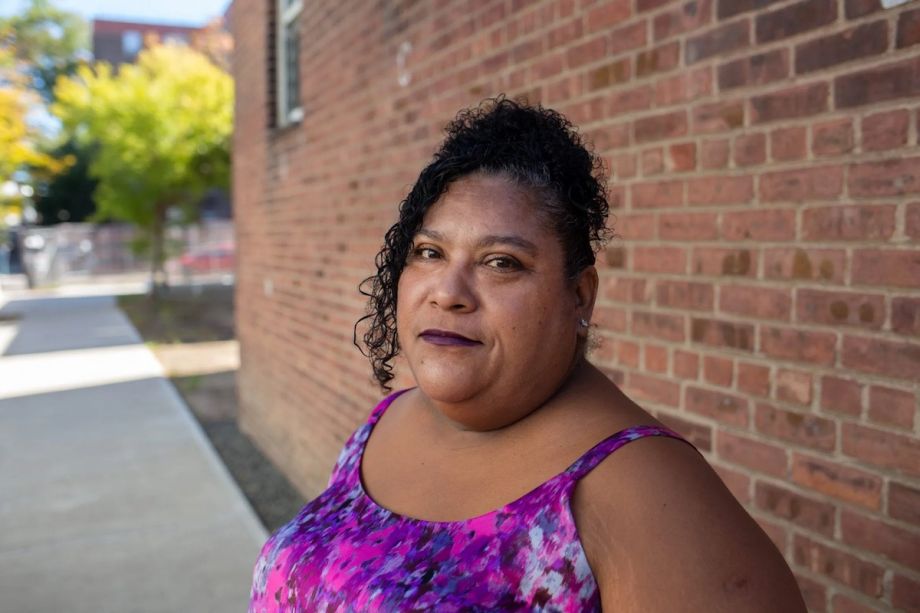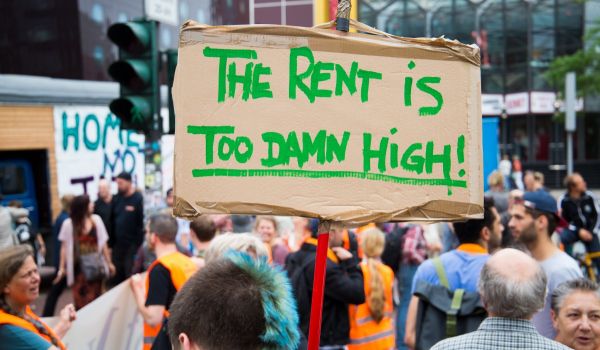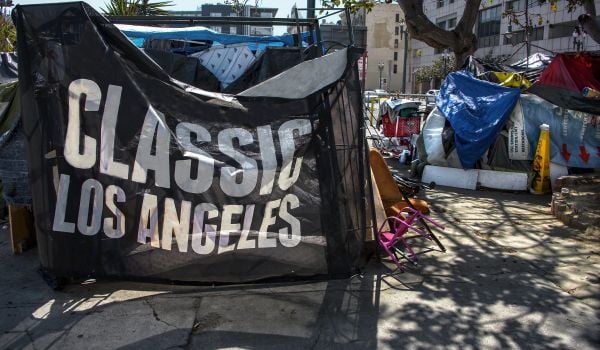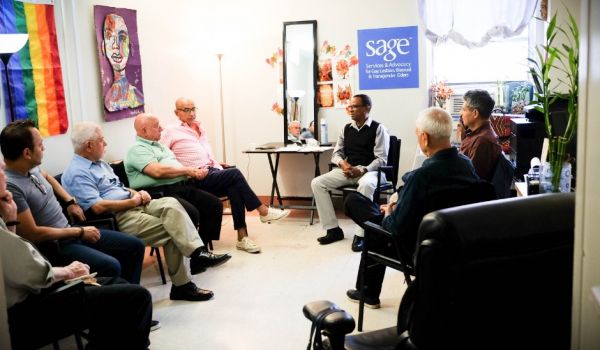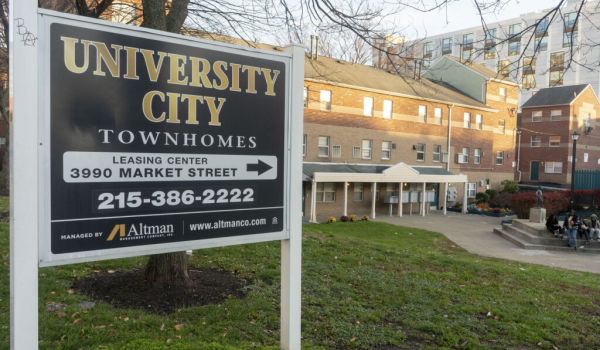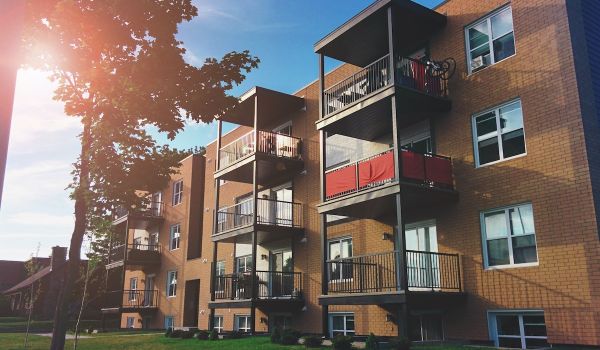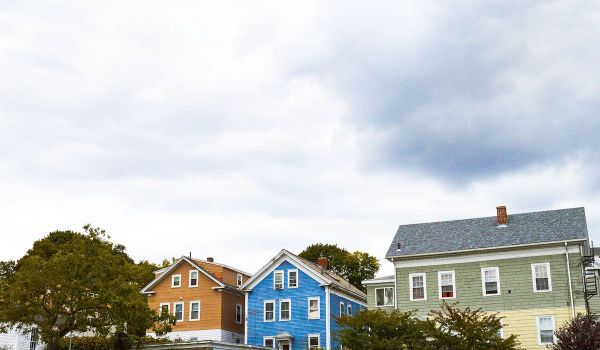This story was originally published by THE CITY. Sign up to get the latest New York City news delivered to you each morning.
Elizabeth Byrd is a single mother of six and grandmother of four who spent 18 years in and out of the Brooklyn homeless shelter system. She is also now working with other tenants to take action against law-breaking landlords and real estate brokers who refuse to accept tenants who use government housing vouchers to pay rent.
“The discrimination they’re doing is illegal, and we can do something about it,” said Byrd, who is 50. “We are too determined to give up.”
Byrd pays 80% of her current rent with a FHEPS voucher, administered by the city’s public assistance agency for families with a history of eviction or domestic violence.
But back in 2019, even with this voucher guaranteeing her landlord will be paid rent in full, she struggled to find an apartment as landlords and brokers would set income restrictions, mention a “no vouchers” policy or flat-out ghost her when she brought up her subsidy — all illegal under Local Law 10 of 2008.
While still living in a Brooklyn shelter and searching in vain for an apartment, Byrd helped lead Unlock NYC, a nonprofit tech organization that helps tenants document voucher discrimination and report it to the city’s Commision on Human Rights.
Unlock NYC is led by a leadership collective, women with backgrounds in law, policy analysis, community organizing and other fields who all use housing vouchers and say they’ve faced discrimination because of it.
Besides FHEPS, members use federal vouchers known as Section 8 and CityFHEPS.
“I’m always trying to find that person that’s like me, that needed that boost, that needed that help,” says Byrd.
Over the last four years, the organization has collected a database of nearly 2,000 reports from tenants reflecting many of the discrimination tactics Byrd faced during her own housing search.
On Wednesday, Unlock NYC is releasing a citywide ranking showing the landlords and brokers that prospective tenants with housing vouchers most frequently reported to the organization since its founding in 2019.
Landing in the top three is the Parkchester Preservation Company, the owner of a Bronx housing complex with about 6,000 rental units that was originally whites-only when constructed in the early 1940s and now best known as Rep. Alexandria Ocasio-Cortez’s residence.
Last year, a state Supreme Court judge ruled that a minimum income requirement for Parkchester applicants amounted to illegal discrimination against voucher-holders, and ordered Parkchester’s owners to offer an apartment to a woman who sued.
In first place is Goldfarb Properties, an affordable housing developer that lost a federal trial this month in a case that also contested minimum-income requirements.
Representatives for Parkchester and Goldfarb did not respond to requests for comment from THE CITY.
“I just feel that this is unfair,” said Clementine Boswell, a Section 8 voucher holder who contributed one of the complaints against Parkchester in 2023 — after the ruling that minimum income requirements are not allowed. Her complaint alleged that a representative from Parkchester tried to get her to pay an illegal background check fee when she applied, citing her voucher status.
Born and raised in Harlem, Boswell moved to South Carolina in 2011, only to move back to New York City in early 2019 following the sudden death of her son Derrick, who was murdered in Queens on June 3, 2018. She began to develop chronic health issues in her hands from working shifts at Walmart, and as of 2021, was unable to keep stable work and was living between her car and various shelters.
She applied for a Section 8 voucher through the NY State Housing Choice Voucher program, and finally received it in early 2023 in what felt like “a miracle,” given that others she knew waited years longer to get one.
“When I got it I was really in dire need,” Boswell says. “I started trying to find a place ever since I got my voucher. I’m doing everything that I am supposed to do. I have like 1,700 emails of me contacting folks for an apartment … and you’re trying to tell me no one wants to give me an apartment?”
THE CITY reviewed text exchanges between Boswell and brokers and landlord representatives that reflected the tactics documented in Unlock NYC’s database: immediately after Boswell mentioned her voucher, they replied that the apartment in question was no longer available, while others would completely ghost her. Often she received these responses after clarifying that her Section 8 program guarantees the landlord full rent payments.
When she reached out to an agent at Parkchester in the summer of 2023, the agent asked her to pay a $250 background check fee because of her voucher, she claims, something other prospective tenants didn’t have to pay. Thanks to a provision in the 2019 Housing Stability and Tenant Protection Act, landlords can charge no more than $20 for a credit or background check.
She claims that she went ahead and filled out the rental application, but when she continued to push back against the extra fee, they told her the unit was no longer available.
Council member Amanda Farías, whose district includes Parkchester, told THE CITY this is not the first time she’s heard allegations of voucher discrimination at the apartment complex.
“No building, management, nor landlord should be denying people apartments based on their income as a valid voucher holder, as doing so is illegal and discriminatory,” Farías told THE CITY.
Boswell connected with Unlock NYC through a referral from the homelessness prevention group Services for the UnderServed and filed her discrimination complaint. Unlock then forwarded her report to the City’s Commision on Human Rights. After many months more of searching with the support of Unlock, she finally found a one-bedroom in Flushing, Queens, whose landlord accepted her application.
“My son, I’m so glad to be close to him now,” Boswell told THE CITY during a visit to her new apartment on Monday, just one week after she moved in. Derrick is buried in Trinity Cemetery in Long Island on the Queens border, and Boswell spent Tuesday, his birthday, celebrating and commemorating him at his gravesite.
Boswell has surgery for her hand scheduled in December, but she says that as soon as she moved into her new place, she already felt her chronic pain improve. Next week, she plans to renew her security license in hopes of landing a job with the city Department of Parks and Recreation.
“What the landlords are doing is right, it’s not right. They are not giving you a chance,” she says. “These people should be brought to justice.”
Ghosting and Fees
The MetLife Insurance company developed Parkchester as a racially segregated community exclusively for white people, similar to its Stuyvesant Town and Peter Cooper Village developments in Manhattan. Built in the late 1930s, Parkchester did not allow people of color to reside there until the New York City Commission on Human Rights in 1968 mandated they integrate. Today, the overwhelming majority of Parkchester residents are non-white, according to recent Census data.
Parkchester, however, has gotten into hot water again with the CCHR in recent years. In 2017, CCHR charged Parkchester with housing discrimination for “repeatedly refusing to accept housing vouchers.” At the same time, it also charged Goldfarb Properties for the same violation.
Since last year’s court ruling that forbade Parkchester from imposing a minimum income requirement, Unlock NYC received six more reports of discrimination from tenants trying to rent a Parkchester apartment, on top of 11 previously in their database.
The new reports complained of other alleged practices at Parkchester’s rental office: ghosting, illegal fees, and claims that apartments were not available, even though later callers were told they still were. Tenants made dozens of complaints to Unlock NYC about other landlords and a wide array of brokers, including Keller Williams and Corcoran.
“The discriminatory practices were a problem back then and they still are today,” says Fannie Lou Diane about Parkchester. Born and raised in the South Bronx to a family of housing justice advocates, Diane became homeless in 2019 while pursuing a masters degree at Sarah Lawrence, serving on her community board, and living in an apartment on Mosholu Parkway. She developed a chronic illness from black mold in her apartment, which made it difficult to continue her research or find stable work, and when she withheld rent in an effort to demand repairs, she was evicted.
Diane has since secured a new place to live using an Emergency Housing Voucher issued by the city housing agency, but said she first experienced discrimination during her hunt.
“If I email them from my Sarah Lawrence email, I have a totally different response, versus when I email from a regular email,” she said. “Looking at the ways people continue to stay homeless, it’s a problem.”
With Byrd, Diane was one of the founding members of the Unlock NYC leadership collective. “We don’t fit the narrative that people have out there of voucher holders, and we are in the room, in spaces that people would never expect us to be,” says Diane, who serves as an advisor, alongside Byrd, to the administration of Mayor Eric Adams regarding source-of-income discrimination.
Unlock NYC built a text message bot that tenants use to document and report voucher discrimination, walking complainants through a series of questions and responses.
Staff members then review these reports and submit them as formal complaints to the city Commission on Human Rights, which follows up to warn landlords and brokers of potential violations and can pursue legal action if warranted.
Sometimes, a call from the Commission is all it takes to get a landlord or broker to reverse course and offer an apartment.
Nailah Abdul-Mubdi helped build the tool in 2021 with a larger team of housing experts and engineers, based on her own experience reporting discrimination when trying to find a landlord that accepts her FHEPS voucher. “The whole method they used to document the source-of- income discrimination and report it to CCHR, that’s exactly what I did myself,” she says.
The Commission on Human Rights has suffered staff attrition that has limited its ability to pursue legal cases against landlords. A spokesperson for the Commission on Human Rights, Claire Gross, asserted that the agency is still forceful in following up with landlords and brokers who are the subject of complaints.
“CCHR’s Source of Income Unit is more robust than it’s ever been,” said Gross to THE CITY, noting that the commision performed 145 interventions this fiscal year that resulted in some kind of satisfactory resolution for the tenant, compared to only 13 during the 2020-2021 fiscal year.
The commission performed 177 such interventions in 2019-20 and 206 in 2018-19, according to the commission’s annual reports.
Unlock NYC’s creation of the “Serial Discriminators” list comes after four years of seeing the same landlords and brokers show up time and time again in the complaints database, members say.
“In meetings I’m always like: what are we gonna do about these people? Looking at one landlord and thinking, really? This person has discriminated 13 times?” Byrd said.
Aside from profiling landlords, the Serial Discriminators List profiles 19 brokerage firms that each racked up over 10 complaints — a mix of small, neighborhood-based real estate firms like Queens Apartment Realty and big national players like Corcoran Group and Compass. Brokers are often tenants’ first point of contact when trying to rent an apartment.
None of the top five landlords or brokerage firms cited most frequently by Unlock NYC responded to THE CITY’s requests for comment.
For many of the leadership collective members, their work with Unlock NYC is an opportunity to deploy their expertise navigating discrimination to help change systems, particularly when working with city agencies is not enough.
“Unlock has opened a lot of potential in a space that felt like the worst part of my life,” says Diane. “For many of us, we lost everything, but we found ourselves again doing this work.”
This article is part of Backyard, a newsletter exploring scalable solutions to make housing fairer, more affordable and more environmentally sustainable. Subscribe to our weekly Backyard newsletter.
Sam Rabiyah is THE CITY’s news applications developer, where he works at the intersection of investigative reporting and data journalism.



